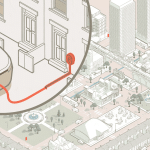Modelling had predicted cases would peak at about 10,000 infections per day in mid-March, but when that did not happen it led to speculation the peak could be delayed or not as severe as first thought.Mr McGowan announced restrictions would ease from Thursday this week, but the latest figures suggest he may have moved too soon.WA Health reported 9754 new infections overnight — with the majority confirmed via rapid antigen tests — taking the total number of active cases to 50,957.There are now 208 people with Covid-19 in hospital, including six in intensive care.WA also recorded three historical deaths — a man aged in his 80s, a woman aged in her 70s and a woman aged in her 90s.“Due to patient confidentiality, no further information will be released by the department on these deaths,” a statement read on Wednesday. Last week, Mr McGowan declared: “It seems WA is currently experiencing the height of our Omicron wave.”But this week, he suggested numbers could rise after fewer cases were reported early in the week.Health Minister Amber-Jade Sanderson also indicated there was “great uncertainty” about whether WA had reached the peak of Omicron.Chief health officer Andy Robertson said in his latest advice on March 24 that it was his preference for restrictions to be downgraded two weeks after Omicron cases peaked and doing so earlier should be conducted with caution.Australian Medical Association WA president Mark Duncan-Smith warned “probably the heaviest day of new cases” would come just as restrictions were reduced. “This is against the express advice of the chief health officer, who said to wait until one or two weeks after the peak of the Omicron outbreak to actually reduce restrictions,” he told reporters on Wednesday.“It’s not anticipated that we will reach the peak at least for a few days, if not another week, as the actual three-day rolling average of new cases has gone up by 1000 cases today. “This suggests the cases are on the rise and that we are seeing an upswing in the number of new cases.”Dr Duncan-Smith suggested Mr McGowan was now making similar — and wrong — decisions to east coast leaders.“The Premier’s decision to reduce restrictions in the face of increasing numbers is at odds to us with medical advice and is more in keeping with the type of activity that was done in the eastern states where they did reduce restrictions in the face of increasing numbers,” he said. “To do so does not make any sense to us. “For the government to suggest that they are following the chief health officer’s advice … is bordering on an episode of Yes, Minister.” Dr Duncan-Smith called on Mr McGowan to unwind his “captain’s call” and reintroduce restrictions if the numbers started to “go bad and go north”. “Our medical system, our doctors and our nurses are tired, and the system is being very stretched,” he said.“We do not need extra pressure on the system because restrictions have been reduced too early.” Dr Duncan-Smith said the daily numbers suggested WA was not at the peak yet. “I really think that we just need to hold the ship steady until we actually hit that peak and we know we’re actually on the downside of this pandemic outbreak,” he said.“The Premier has already made the captain’s call to go against medical advice for what appears to be the first time in this pandemic, for reasons that I don’t know.” Under scaled back restrictions that come into effect on Thursday, people will not need to check-in at supermarkets and shops, but must do so at restaurants, pubs and cafes.Masks will still be required indoors for adults and children in Year 3 or above.Indoor home gatherings will be limited to 30 people, while private outdoor gatherings will be capped at 200 people with the 2 sqm rule in place at private residences.There are also a raft of other rules for public venues.WA Health data covering the period of March 14 to 27 showed the total number of hospital admissions included 31 per cent who were not vaccinated, five per cent who had received one jab and 36 per cent who had been administered two doses.A further 28 per cent had received more than two doses, according to WA Health. Most of the hospitalisations involved people aged 40 to 69.WA now has a third dose vaccination rate of 74.7 per cent among people aged 16 and over.
Powered by WPeMatico






